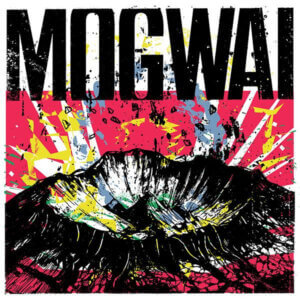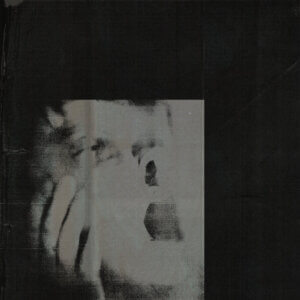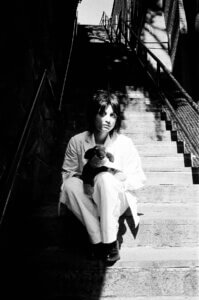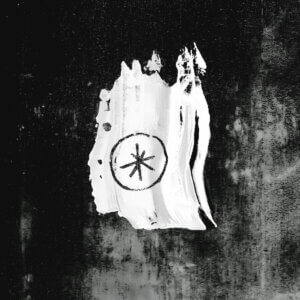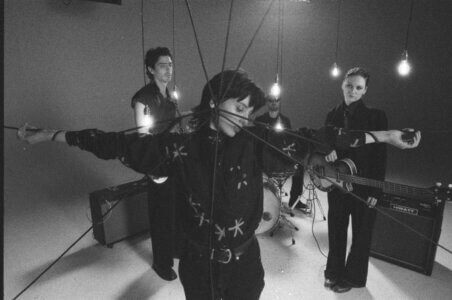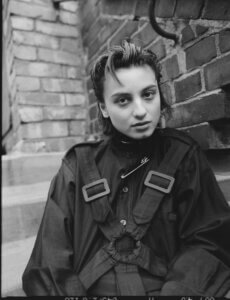Heartworms explores destructive behaviors on striking debut record
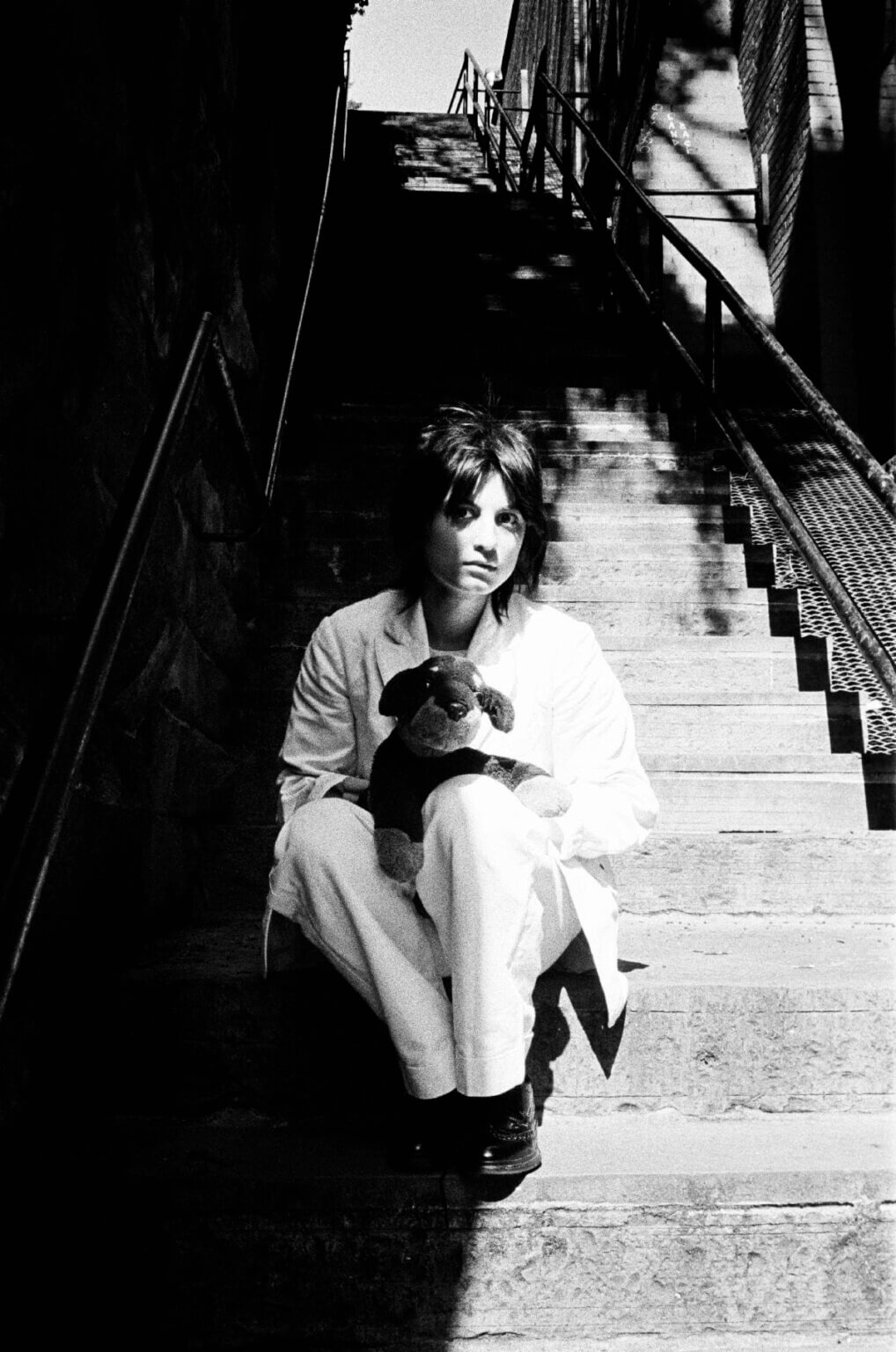
Heartworms’ dark and often unsettling debut album Glutton For Punishment, the London-based songwriter and musician anchors herself amongst themes of fractious and unhealthy relationships with a reassuring refrain, “All I want to do is dance, dance, dance, dance…”. There’s a freedom and release that comes in the act of dancing, one that facilitates a moment of escape from reality. Jojo Orme, the singular force behind the Heartworms moniker, expresses that desire for escape across Glutton For Punishment’s deft nine tracks, co-produced with Dan Carey, in her most diverse and dynamic songwriting to date. A gothic pop melodic sensibility creeps into these tracks as she continues to expand-upon the industrial and mid-2000s dance-punk foundation established on their debut EP, A Comforting Notion (2023).
Northern Transmissions spoke to Jojo Orme about their debut album Glutton For Punishment (due via Speedy Wunderground on February 7th, 2025) and her desire to be taken seriously and learning how to be patient in the songwriting process.
NT: Congratulations on the announcement of your debut album, Glutton For Punishment. Debuts are obviously such an important release in an artist’s career, it introduces you to audiences and announces your creative expression. What statement did you want to make with Glutton For Punishment? What do you hope people take from this body of work and how they perceive you as an artist from these nine songs?
Jojo Orme: Definitely to take me seriously because I didn’t feel as though I was taking that seriously after my EP, A Comforting Notion. It takes a long time to release stuff because I like to take my time, but I wanted to show that I can make things. It’s not necessarily going to be a long album, it’s nice and short and sweet because I think that’s a very important thing for an artist who’s just up and coming; you don’t want to bore people with too many things.
I want people to just see [the album] as a maturity. I’ve matured a lot in the style of how I look and sound. I found my voice more. A lot more, actually. There’s a lot more singing in these songs. There’s all these kinds of things that are just new. I feel like people will take me a lot more seriously, hopefully.
NT: When you say that people didn’t take you seriously, was that the press side of things or a general feeling that you had following the Heartworms EP?
Jojo Orme: I guess, maybe it was because I didn’t take myself too seriously. It was quite a relaxed thing where I just wanted to make this particular thing, you know, this is what I want to do but some people didn’t get it. Some people did. It’s quite a hard way to show how serious you are if you’re just releasing four songs and you don’t really have much to really show for it. What I had to show for it was the passion I had behind it; my military passion and who I am and my honesty. I’m not trying to be anything else except myself. I had a lot of criticism about wearing military stuff, which is a bit sucky because it was quite misogynistically-driven.
This album, for me, is to be like, ‘Fuck you. I can literally do what I want and wear what I want, even if it’s not for the military’. It’s not the most important thing to me to prove that to people. It’s important for me to feel that I can do more than what I did before.
NT: Yeah, absolutely. During the songwriting process for the album, delving into yourself and the themes that maybe you wanted to cover, that you were maybe surprised to learn and were grateful to have because they helped you grow both as an artist and as an individual?
Jojo Orme: When I wrote these songs, two of them, “Jacked” and “Mad Catch”, those two were written many years ago, and I knew that there was going to be an album made from them. I had a different idea of what the album would be. I don’t ever have a concept, it just happens where I write something and it fits and the story makes sense afterwards.
When I was writing the rest of the songs, it was a very stressful time because I was slightly late to write an album! I had to write an album and I was like, ‘Fuck, I need to write this album’. I left myself in a room and wrote as much as I could. Then I traveled to Hastings with my partner, where I wrote “Smuggler’s Adventure”, like the riff of that song. I was learning how to write an album. I’d never written an album before, so I was learning how I do these things and I cannot do it in one sitting. Not many people can, as much as I wish I could! The ideas came quickly, but it took a while to develop them. For example, “Smuggler’s Adventure”, it took a while to make that song what it is. It wasn’t what it was before, but I knew it had potential. I learned a lot about how patient I could be with writing music. I was never patient enough. I always had to rush things and it was okay that it’s not really finished. Nothing’s ever really finished, but it’s always good enough.
For me, this album wasn’t really finished but to me it’s good enough because I thought that if I push it anymore, I’m probably going to ruin it. In that way, I learned an understanding that you have to let things go. Even if you’re not fully happy with it, you kind of have to let it go because people will see it differently to how you see it, as well.
There’s all these things I learned while making the album but I’m struggling to write more at the moment. I’m struggling to put my head in a mindset again to actually write and learn these new styles and find a new sound. I’m not always thinking about what’s going to be new for Heartworms. I’m always thinking about what world I want to portray next. If it’s going to be more stories about the aircraft I love, stories about people who died in the war or things about my past. All that makes Heartworms what it is for me.
NT: What you’re saying about learning patience and how some things are never really finished, that allows an amount of space for you to expand upon the songs in a live setting.
Jojo Orme: Yeah, well with the live thing, I never think about how a song would be live when I’m writing it because that’s how you can stop yourself from being more creative than you want to be. If you’re thinking about how it’s going to sound live, that might stop you from doing things like adding a glockenspiel or something like that. People who don’t have a backing track or have the money to perform with one of those things, it’s hard and it sucks. But, it shouldn’t stop you from doing it because there’s so many things you can imitate live. Even if you don’t have enough money for it. That should never stop your creativity.
One thing that’s always helped me. Like the theremin I have, it costs me about £50 and I’ve had it for a long time. I spent a lot of my money on it because I was like, ‘This is going to be such a cool thing to elevate Heartworms live shows’. It’s not a glockenspiel, it’s not all these things, but it’s a cool thing to have and it went far for me and people really liked it.
NT: The album is bookended with the refrain, “All I want to do is dance, dance, dance, dance…” which comes in on “Just To Ask A Dance” on the closing track to bookend the album. It’s the last thing we hear from you. What was the significance of having that sentiment as an anchoring lyrical aspect to the LP?
Jojo Orme: I’m really glad you actually asked this because I say a lot of things in my lyrics that come from things that happen in my head or things that’ve happened in my life that I’ve obsessed over. I’ve been in relationships where the people I was with didn’t want to dance with me and I love to dance. It’s one of my favorite things to do but they didn’t like to express themselves in that way. I always felt so alone because I love to do it and always want to dance. It’s one of things where you want to be seen. Having someone that you can do that with is a very important thing for me.
But that line can also mean something even deeper than that. There’s other things that I really wanted to do when I was a kid but I couldn’t do it because my mum didn’t want to do it with me, and all I wanted to do was that thing, whatever it was. That’s why I say it. I’m really glad you spoke about that because it’s quite important to me.
NT: It’s like a personal statement or mantra, something that’s with you all the time in different situations that you just want to share something with someone. You don’t want to have to be alone doing things.
Jojo Orme: Exactly, exactly.
NT: You kind talked earlier about using the range in your vocals more across the album. On some songs, you go for really striking grandiose soaring deliveries to then be like a spectral figure in the quieter, almost whispered spoken word moments. Did you enjoy playing around with your voice during the recording sessions?
Jojo Orme: I found my voice, randomly, a couple of years ago with “Consistent Dedication”. That was the song that made me find my voice more and work to project it. I knew I wanted to sing more and covering songs in my bedroom and also from performing songs, I knew that I could hit certain notes. I was like, ’Oh, this might be a good thing to do’. I record my demos through my laptop speaker, I’m always very close to my laptop when I’m recording vocals. Then, I decided to try and project my voice. That’s when I started to learn more about how my voice sounds through a demo when I project it.
When I perform live, it’s the scariest thing now. It was easier before when I had my EP, because I was just saying stuff. Now, I’m making sure I don’t drink dairy or do all these things to make sure my vocals can reach those levels. With the dynamics of the album, Prince and Michael Jackson were my main inspirations in that regard. Prince always had different voices, always managed to imitate things and make sounds with his voice and all these amazing things. It’s the same with Michael Jackson and that’s been in my head since I was a kid. I’ve always loved that! When you’re a kid your brain’s like a sponge for taking in all of the things that amaze you, especially. That taught me a lot about how to be dynamic. Also, I get bored if I’m doing the same thing all the time. That’s another thing with the EP, I was just like, ‘I know that I can do better. I can do so many different dynamics’.
With “Extraordinary Wings”, I love that song, I love singing it because it has emotion. I can feel it. I just want to cry every time I sing it. That is when my powerful voice comes through, which I never thought was there until I wrote that song. I was like, ‘Whoa, I didn’t know that was there! That’s cool’.
NT: That’s interesting to hear you mention Prince and Michael Jackson being two influential figures in your work. Listening to the album, there are so many great reference points that I enjoyed. Who were some of the artists or albums that you were listening to, either to get away from the world that you were creating in Glutton For Punishment? And, what were some of the albums that you went to for a bit of a release?
Jojo Orme: I actually avoid doing that. Mine’s more subconscious of what I’ve already heard weeks before, months before, even years before. If I can’t think of something, sometimes there are moments where if I’m thinking of a structure, say for example, “Smuggler’s Adventure”, that was the only song that I had to actually listen to another song because I knew it was going to be a long song so I thought of another long song that I know. So, I went to “Lazy Eye”by Silversun Pickups. The structure of “Smuggler’s Adventure” is kind of inspired by that song because of how it cuts off and then comes back in at the end. That was the only thing that I remember going to something specific because I really struggled. There was one other thing actually which I did in “Smuggler’s Adventure”, there were lots of different inspirations in that song because it’s more commercial leaning for me compared to those songs I write. In that song I go, ‘Yes’, in like a chipmunk voice. That was actually a nod to Interpol from their album, The Other Side of Make Believe, from the song “Tony”. I added it in because I love that kind of stuff where it’s so unnecessary and makes no sense. If Paul Banks heard me he’d understand what I mean!
NT: You spoke about “Extraordinary Wings” earlier. That was another song that so striking on the album. It contains two central refrains: ‘I destroy the fallen’ and ‘I don’t wish for murder because I got no right’. I was interested to hear where those lines came from and the process of developing that song and what that song has meant both to you and within the context of the album?
Jojo Orme: That song was an anti-war song towards the end of making it. It began as a song about love for wings; angels, birds, metal birds, planes. The line ‘I destroy the fallen’ came out naturally and it made me think of how the world and human beings destroy the fallen; people who are already fallen, who are already broken. Things that are already broken, we destroy more. It feeds into the whole glutton for punishment thing, it’s all linked together. With ‘I destroy the fallen’, I take on the character of someone who wants to hurt those who are already hurt, but taking the character for them. It’s hard to explain but when I sing it, it makes sense.
And then to go from ‘I destroy the fallen’ to ‘I don’t wish murder because I got no right’ is me changing character and expressing that I don’t wish murder, I have no right to. With all the things that happen and have been happening, there are wars in so many places, not just Palestine. There’s a long list, and it will never stop. “Extraordinary Wings” captures that whole feeling of it never stopping. It’s just a human thing that happens in our existence and the thing we have to accept, no matter what but we can be anti-war and do the best we can to help prevent it. Unfortunately, it feels like it can never be stopped. It’s about finding the beauty from the situation we are in. It’s easy for us to be able to express ourselves in our own ways and live comfortably and do all these things so you might as well do it beautifully.
NT: You’ve described Heartworms as a way to “channel feelings of control, anger and pain into performance, one of the few acceptable outlets for the uglier feelings that exist within us all”. Is there a song or lyric on Glutton For Punishment that encapsulates where you were emotionally and mentally making the album?
Jojo Orme: “Just To Ask A Dance”, when I sing it live feels amazing. The chorus is about obsession and not really knowing the difference between love and obsession as a kid and also maybe as you get older and become a teenager. I had that thing about being obsessed with people because it was my escape from home and escape from school. I needed something to focus on so I would obsess over people and write songs about them. stuff like that. I used to make myself think that they feel the same way as me.
The lyric, ‘I don’t have a chance to ask for a dance from you’, at the beginning of the song, specifically, starts by setting the scene, ‘Run down a hall / Into the sun / Shimmer of glaze / How you began’. I’m talking to that person, that thing that I’m obsessed with and how it just happened out of nowhere. You don’t really know how these things start.
And then it goes, ‘All of these years / Still think of the time / We met eyes / Then you were mine’. That’s continuing to build the story about how this obsession happened and all the things that I think the person’s feeling about me which is actually delirious because it’s not that way at all. When you listen to it as a new listener, you think it’s about love: ‘All of this emotion, who is to blame? Rules of passion does a romance say what you say? / Body is a temple and a temple in the mind’. That’s one of my favorite lyrics. We’re always told to look after our bodies, but my goodness it’s so hard to want to love it and to look after it. And through being obsessed, you’re trying to change your image, trying to make yourself look certain ways. It’s all these things as a kid, as a teenager, or some people just can’t come out of it. At the end of the chorus where I sing, ‘I don’t have a chance to ask for a dance from you’, is me realizing how shy I am to actually talk to this person. To actually open myself about being and feeling this way. It’s actually all just happening in my head. That lyrically, that song, resonates with me very strongly when I sing it and when I speak it, as well.
Order Glutton For Punishment HERE
Latest Reviews
Tracks
Advertisement
Looking for something new to listen to?
Sign up to our all-new newsletter for top-notch reviews, news, videos and playlists.
